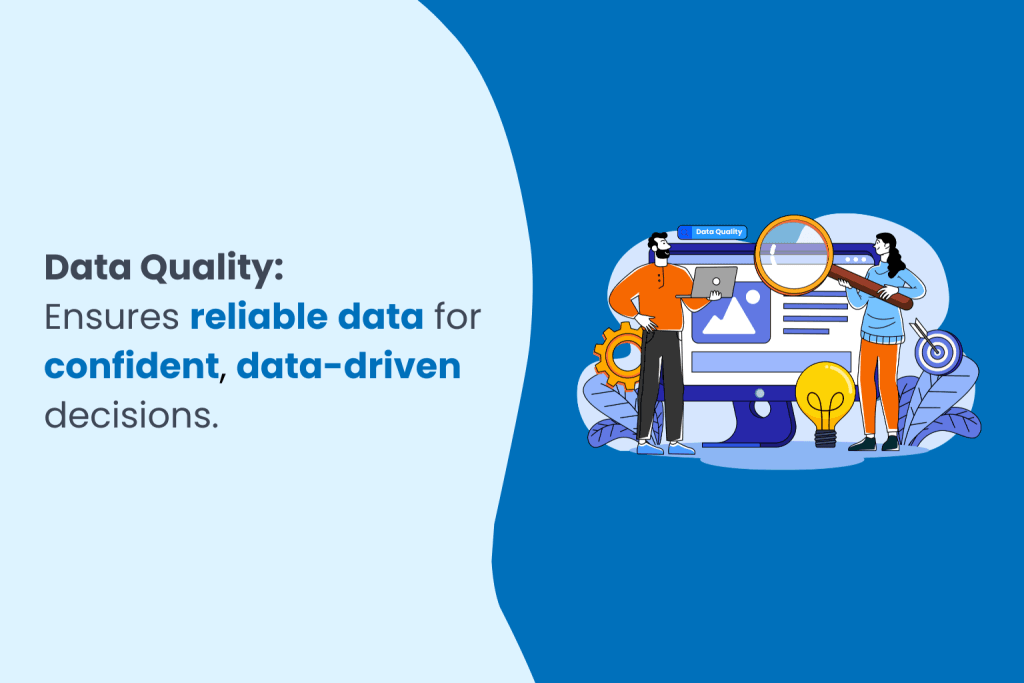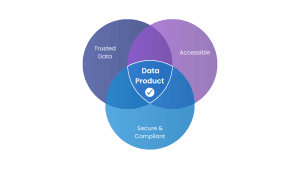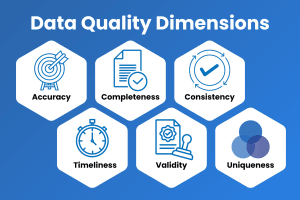Data Quality
Data must be managed as a valuable business asset. It fuels countless processes — from ESG reporting to complex AI applications. Whatever the use case, the data needs to be reliable and fit for purpose. Only then can organisations build on it, work data-driven, and create sustainable impact.
A solid framework for monitoring and improving Data Quality is essential. Without it, many data issues remain hidden — resulting in risks like poor decisions, compliance failures, and unnecessary inefficiencies.


Data Quality Management
Effective Data Quality Management is the key to realising data’s full potential. It is a continuous process of planning, executing, and controlling activities that apply quality management to data, with the goal to make data fit for its intended use.
This requires a Data Quality framework aligned with the business strategy and, where necessary, compliant with regulations such as BCBS 239 and Solvency II.
Such a framework supports identifying critical data, setting quality rules, detecting and analysing issues early, addressing root causes, and reporting results. This is how organisations gain control over the quality of their data — and therefore over risk, performance, and compliance.
Our services
Strategy
We support the creation of policies, roles, and processes that secure Data Quality — such as a robust framework and Data Quality policy.
Implementation
We ensure that the right tools and processes are in place to make Data Quality visible and manageable.
Training
Whether you are just starting out with Data Quality or already have a team of seasoned Data Stewards, we provide Data Quality training suited to your organisational maturity.
Blogs on Data Quality
Measuring Data Quality of a Data Product
The six most used Data Quality dimensions
Key Data Quality Management Capabilities
Common Questions
Data quality refers to the accuracy, completeness, consistency, timeliness, validity, and uniqueness of data within a dataset. High data quality ensures that information is reliable and suitable for its intended use, supporting effective decision-making and analysis.
Always start with an assessment of your Data Quality requirements and scope. What processes are critical? And what data is consumed in critical processes. It is helpful to establish a Data Quality policy or framework that defines what data in your organisation is critical, which Data Quality dimensions are used, and how rules are executed.
For middle- and large sized organisations, a dedicated Data Quality tool is essential to improve Data Quality at a large scale. Data Quality tools help you with data profiling, implementing Data Quality rules, and provide comprehensive dashboards.
Having good quality data entails compliance to regulations, but also making sure it is fit for purpose. It increases trust in analysis and reporting in your organisation. Better quality data ultimately leads to better business decisions.
The six most used Data Quality dimensions are:
- Accuracy: the correctness of data.
- Completeness: the presence of required data elements (no missing values).
- Consistency: the absence of differentiations between data elements.
- Timeliness: the relevance of data and presence of up-to-date data.
- Validity: data adheres to rules and standards, and is fit for purpose.
- Uniqueness: the absence of duplicate records.
Interested in our Data Quality services?
Could you use some help with the implementation of Data Quality within your organisation? Are you looking for help in setting up your strategy? Or how to implement a Data Quality tool?
Contact us for more information or to request a demo.



